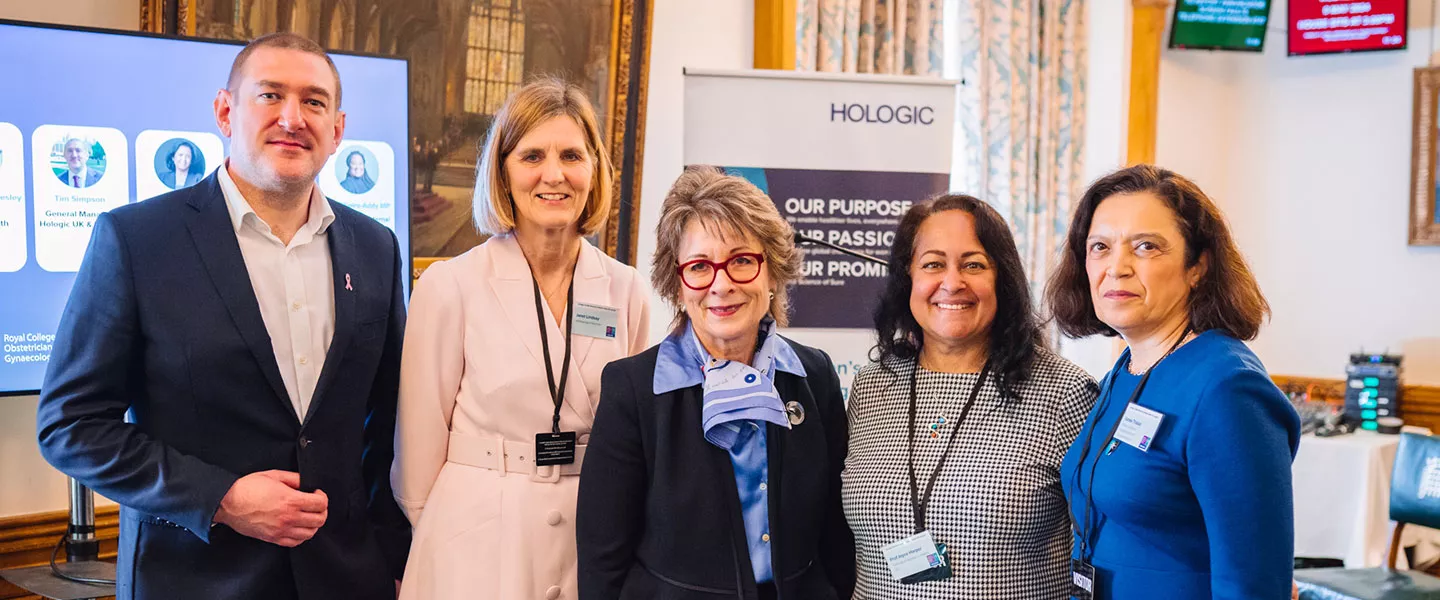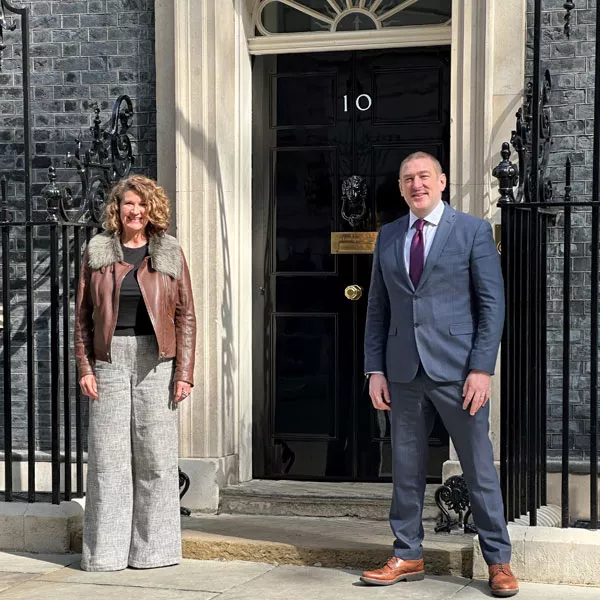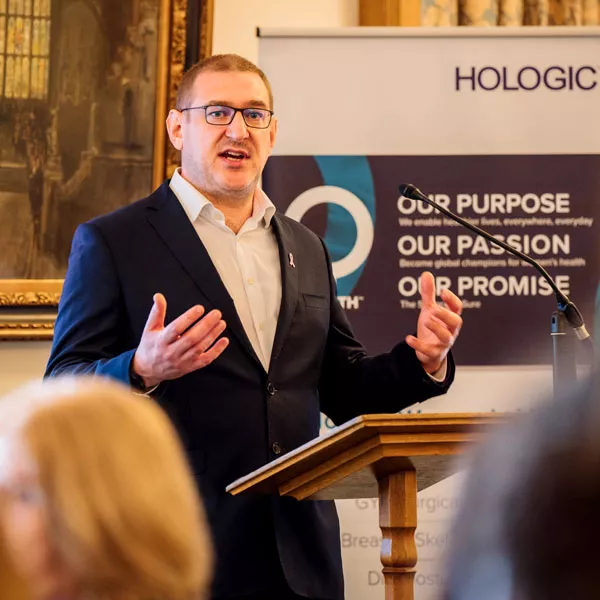The Power of Policy: Advocating for Women’s Health in the UK

Advocating for governmental policies on women's health that increase public awareness, support technological innovation and boost healthcare access formed the crux of Hologic's recent outreach to lawmakers in the United Kingdom.
These activations brought together healthcare advocates and key government figures for pivotal discussions on the way forward for women's health. Following is a summary of two of these events:
10 Downing Street
Tanja Brycker (International Vice President of Strategic Development for Breast, Skeletal and Surgical Health) and Tim Simpson (Hologic UK General Manager) accepted an invitation to a meeting at 10 Downing Street – the world-recognized residence of British prime ministers since 1735 – for a conversation about women’s healthcare in the UK. This visit was a first for the Hologic UK team and represented an unprecedented opportunity to address women's health at the highest levels of government.
"It was empowering to see the government's interest and commitment to continual improvement of healthcare opportunities and experiences for women across the UK," Brycker said. "We discussed some priorities to further enable preventive healthcare for women. This was an excellent opportunity to share insights from our recent interactions with European Union policymakers."
Simpson shared his thoughts on the visit and what it means for the future of women's health policy. "This opportunity is huge and it's dialogue like this that paves the way for meaningful improvements and impactful policies. I’m looking forward to building on this conversation in the future," he said.
Panel Event in Parliament
Following Brycker and Simpson's visit to 10 Downing Street, the Hologic UK team hosted an event in Parliament to discuss what the next government should do to improve women's health in the UK. The session featured a panel comprised of women's health and health policy experts, including Dame Lesley Regan (Professor of Obstetrics & Gynaecology at Imperial College London), Janet Lindsay (Chief Executive at Wellbeing of Women) and Professor Ranee Thakar (Royal College of Obstetricians and Gynaecologists). Joyce Harper (Professor of Reproductive Science at the Institute for Women's Health, University College London) moderated the discussion.
Simpson gave the keynote address to open the event, which served as a platform to introduce the third year of UK data from the Hologic Global Women's Health Index.
Quote from Tim Simpson
"We know that without insights and data, we cannot inform the long-term policymaking that will support better outcomes for women across the UK."
Insights from the panel fueled an engaging discussion on what actions should come from decision-makers to ensure women are at the heart of healthcare in the UK.
The Index data for Year 3 paint a mixed picture of women's health in the UK, but also highlight areas of opportunity. While the UK score remained the same year-over-year, the country ranking dropped seven places – a statement to the improvements being made by other countries. In his overview of the results, Simpson proposed three focus areas for the UK government to keep in mind for the betterment of women’s health going forward: knowledge, technology and access.
"The Hologic Global Women's Health Index is a long-term project," he said. "Over the coming years, we will build up an increasingly useful bank of data and insight for the next government. We will be able to better measure the problem we face and, I sincerely believe, be in a better place to fix it."

Tanja Brycker (left) and Tim Simpson (right) at 10 Downing Street in London.


